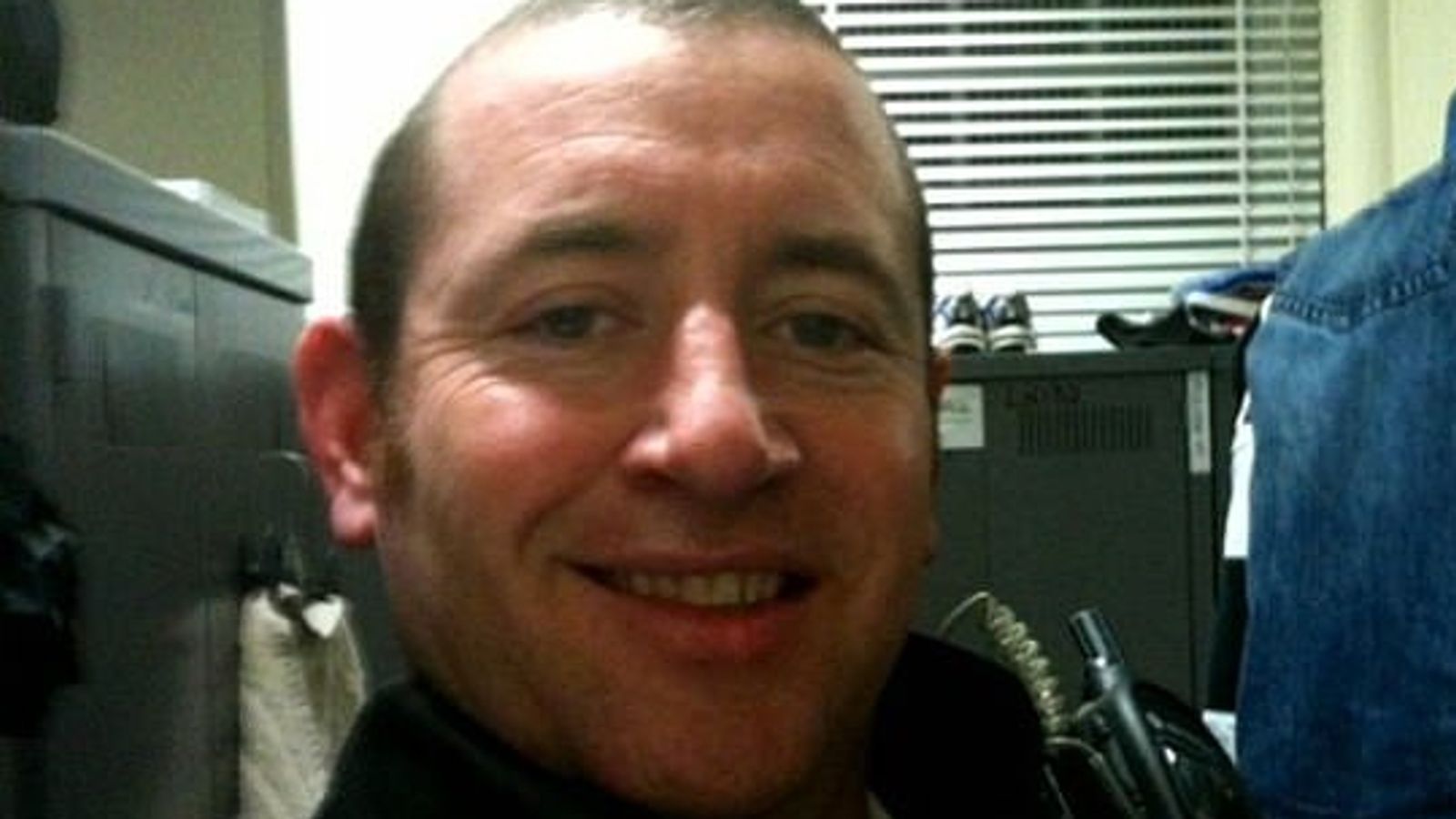An “evil” police officer who was unmasked as one of Britain’s most prolific sex offenders has been jailed for at least 30 years after being handed 36 life sentences.
David Carrick, 48, was branded a “monster” who carried out a “catalogue of violent and brutal sexual offences” against 12 women over nearly two decades.
Carrick was silent and impassive as the sentence was handed down.
The judge Mrs Justice Cheema-Grubb said she was satisfied that life sentences were required in this case.
She said she agreed with the prosecution that the case does not merit a whole-life order, despite the “upmost seriousness” of the offending.
A whole-life order would have meant he would never have been eligible for parole. Carrick’s sentence means he cannot apply for parole until he has served at least 30 years in prison.
Victims described in court how they were raped, controlled and degraded by Carrick, who they feared was too “powerful” to be reported for his crimes.
Live updates from court as rapist policeman Carrick is sentenced
Mrs Justice Cheema-Grubb said during sentencing that Carrick was moved to a hospital while in custody after carrying out a “committed attempt” to kill himself.
The judge said the suicide attempt was a “self-pitying reaction” to the “shame” Carrick felt from the court proceedings against him.
The former Metropolitan Police officer had pleaded guilty to 49 charges – including 24 counts of rape – covering a total of 85 offences.
He was sentenced at Southwark Crown Court.
During his sentencing, Mrs Justice Cheema-Grubb said: “These convictions represent a spectacular downfall for a man charged with upholding the law and empowered to do so even to the extent of being authorised to bear a firearm in the execution of his duty.
“Behind a public appearance of propriety and trustworthiness, you took monstrous advantage of women drawn into intimate relationships with you.
“You brazenly raped and sexually assaulted many women, some you barely knew. You behaved as if you were untouchable. You were bold and at times relentless, trusting that no victim would overcome her shame and fear to report you.”
Please use Chrome browser for a more accessible video player
The judge went on to speak about a serving Metropolitan Police officer who was raped by Carrick but felt she couldn’t report it to her colleagues.
She said: “The police officer you raped in 2004 had herself been trained to deal sensitively with complainants, but she didn’t report to you until 2021. The reason was shame and she didn’t want to put herself through reporting an anal rape.
“She described this as a hypocritical view, but she didn’t feel brave enough to do it, so she told herself to toughen up and move on.”
The judge said Carrick poses a “high risk of serious sexual harm” to the public.
“I’m sure you present a grave danger to women who might be persuaded to be alone with you,” she added.
The case is the latest in a spate of scandals at the Met Police, including the murder of Sarah Everard by then-serving officer Wayne Couzens.
The force was forced to apologise and admit Carrick should have been rooted out earlier after it emerged he came to police attention over nine incidents before he was prosecuted. They included allegations of rape, domestic violence and harassment between 2000 and 2021.
All of Carrick’s admitted crimes occurred while he was working for the Met Police.
Known by colleagues as “B*****d Dave”, he joined the force in 2001 before becoming an armed officer with the parliamentary and diplomatic protection command in 2009, guarding the Houses of Parliament and embassy sites.
Carrick, from Stevenage, Hertfordshire, was sacked by the Met Police after his guilty pleas.
Officer whipped and urinated on victims
Over a two-day sentencing hearing, the court heard that Carrick held a gun to a woman’s head before repeatedly raping her and threatened to use his police baton on another victim.
Some women were urinated on, locked naked in a cupboard under the stairs in Carrick’s home, whipped and watched remotely through cameras while he was at work.
He also sent a victim a photograph of himself with a work-issue gun, saying: “Remember I am the boss.”
Read more:
Police officer tells of rape by David Carrick
Timeline of missed opportunities to stop rapist police officer
Please use Chrome browser for a more accessible video player
Prosecutor Tom Little KC said: “The reality was that it did not matter who the victim was … he would rape them, sexually abuse or assault them and humiliate them.”
The court heard one victim – Darciane Nunes Da Silva – who was raped and sexually assaulted by Carrick had waived her right to anonymity.
In a series of victim impact statements read by the prosecutor, women spoke of the trauma they had suffered from Carrick’s crimes – including some who were left suicidal – and how the case had damaged their trust in police.
Carrick told victim: ‘I am the law’
One woman said: “I don’t trust the police any more. If anything went wrong I don’t know whether I would want to call the police as I’d worry that they would send a male officer like him.
“The thought of being alone with a male officer makes me very anxious.”
Another victim said she had been “too frightened” to report Carrick’s crimes after he told her “he was the police, he was the law, and he owned me”.
Meanwhile, the woman who was raped in Carrick’s home after he pointed a gun at her head said she felt she had “encountered evil”.
“I honestly thought he was going to kill me that night,” she added.
The court heard Carrick relied on his “charm” to “beguile and mislead” his victims, then used his “power and control” to stop them leaving or reporting him.
‘He cannot ask for mercy’
One victim described the police constable as “acting like a monster” and said he would call her “his slave”, asking her to take her clothes off while cleaning his house.
Carrick, 48, told another victim he would pay her £1,000 a month to be his “slut”, the court heard.
One woman, who was repeatedly raped by Carrick, told a friend that “nobody would believe her” if she reported the attacks because he “was a police officer and very powerful”.
Alisdair Williamson KC, defending, said Carrick “accepts full responsibility for what he has done”.
He pointed out that one victim had noted that “something had profoundly damaged this man”, saying Carrick was “testament” to how “the abused” can become “the abuser”.
“He cannot ask for mercy and does not,” the barrister said.










